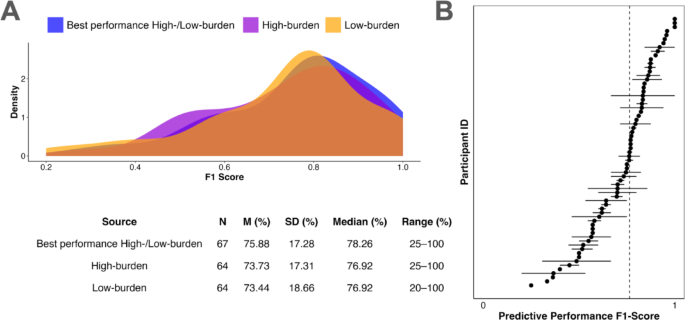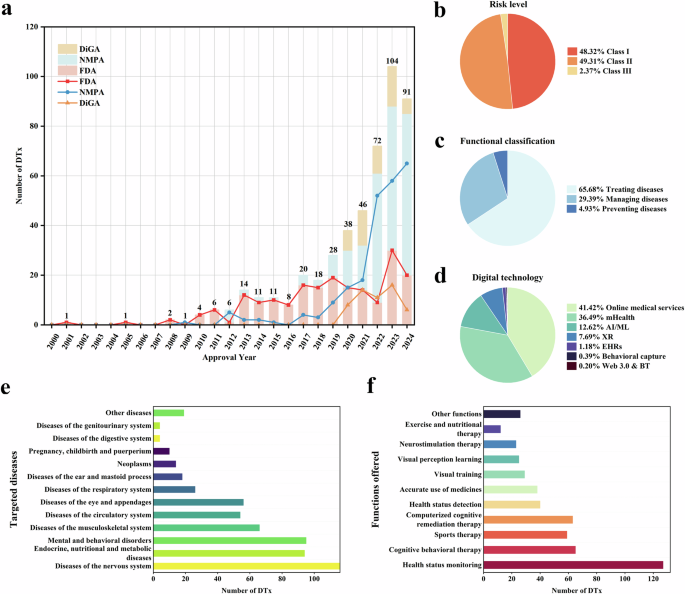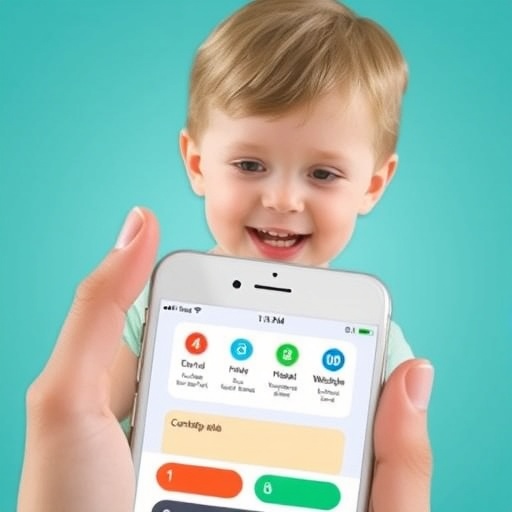Standardized evaluation of the quality and persuasiveness of mobile health applications for diabetes management

Tamayo, T. et al. Diabetes in Europe: an update. Diabetes Res. Clin. Pract. 103, 206–217 (2014).
Google Scholar
World Health Organization. Data and statistics. https://www.euro.who.int/en/health-topics/noncommunicable-diseases/diabetes/data-and-statistics.
Beck, J., Greenwood, D. A., Blanton, L., Bollinger, S. T., Butcher, M. K. & Condon, J. E. National Standards for Diabetes Self-Management Education and Support (2017).
Peyrot, M., Peeples, M., Tomky, D., Charron-Prochownik, D. & Weaver, T. Development of the American association of diabetes educators’ diabetes self-management assessment report tool. Diabetes Educ. 33, 818–826 (2007).
Google Scholar
Lange, K., Swift, P., Pańkowska, E. & Danne, T. ISPAD clinical practice consensus guidelines 2014. Diabetes education in children and adolescents. Pediatr. Diabetes 15(Suppl 20), 77–85 (2014).
Google Scholar
Kitsiou, S., Paré, G., Jaana, M. & Gerber, B. Effectiveness of mHealth interventions for patients with diabetes: an overview of systematic reviews. PLoS ONE 12, e0173160 (2017).
Google Scholar
Cui, M., Wu, X., Mao, J., Wang, X. & Nie, M. T2DM self-management via smartphone applications: a systematic review and meta-analysis. PLoS ONE 11, e0166718 (2016).
Google Scholar
Bonoto, B. C. et al. Efficacy of mobile apps to support the care of patients with diabetes mellitus: a systematic review and meta-analysis of randomized controlled trials. JMIR mHealth uHealth 5, e4 (2017).
Google Scholar
Huang, Z., Soljak, M., Boehm, B. O. & Car, J. Clinical relevance of smartphone apps for diabetes management: a global overview. Diabetes Metab. Res. Rev. 34, e2990 (2018).
Google Scholar
Moumtzoglou, A. Mobile Health Applications for Quality Healthcare Delivery (IGI Global, 2019).
Google Scholar
Whitehead, L. & Seaton, P. The effectiveness of self-management mobile phone and tablet apps in long-term condition management: a systematic review. J. Med. Internet Res. 18, e97 (2016).
Google Scholar
Klonoff, D. C. The current status of mHealth for diabetes: will it be the next big thing?. J. Diabetes Sci. Technol. 7, 749–758 (2013).
Google Scholar
Hood, M. et al. What do we know about mobile applications for diabetes self-management? A review of reviews. J. Behav. Med. 39, 981–994 (2016).
Google Scholar
Eng, D. S. & Lee, J. M. The promise and peril of mobile health applications for diabetes and endocrinology. Pediatr. Diabetes 14, 231–238 (2013).
Google Scholar
Arnhold, M., Quade, M. & Kirch, W. Mobile applications for diabetics: a systematic review and expert-based usability evaluation considering the special requirements of diabetes patients age 50 years or older. J. Med. Internet Res. 16, e104 (2014).
Google Scholar
Gong, E. et al. Quality, functionality, and features of Chinese mobile apps for diabetes self-management: systematic search and evaluation of mobile apps. JMIR mHealth uHealth 8, e14836 (2020).
Google Scholar
Chavez, S. et al. Mobile apps for the management of diabetes. Diabetes Care 40, e145–e146 (2017).
Google Scholar
Stoyanov, S. R. et al. Mobile app rating scale: a new tool for assessing the quality of health mobile apps. JMIR mHealth uHealth 3, e27 (2015).
Google Scholar
Kelders, S. M., Kok, R. N., Ossebaard, H. C. & van Gemert-Pijnen, J. E. W. C. Persuasive system design does matter: a systematic review of adherence to web-based interventions. J. Med. Internet Res. 14, e152 (2012).
Google Scholar
Ryan, J. C. et al. Identifying critical features of type two diabetes prevention interventions: a Delphi study with key stakeholders. PLoS ONE 16, e0255625 (2021).
Google Scholar
Oinas-Kukkonen, H. & Harjumaa, M. Persuasive system design: key issues, process model, and system features. CAIS 24, 28 (2009).
Google Scholar
Baumeister, H., Kraft, R., Baumel, A., Pryss, R. & Messner, E. M. Persuasive e-health design for behavior change. In Digital phenotyping and mobile sensing (eds Baumeister, H. & Montag, C.) (Springer Nature, 2019).
Google Scholar
Wozney, L. et al. How do eHealth programs for adolescents work? A realist review of persuasive system design components in internet-based psychological therapies. J. Med. Internet Res. 19, e266 (2017).
Google Scholar
Radomski, A. D. et al. Design and delivery features that may improve the use of internet-based cognitive behavioral therapy for children and adolescents with anxiety: a realist literature synthesis with a persuasive systems design perspective. J. Med. Internet Res. 21, e11128 (2019).
Google Scholar
Priesterroth, L., Grammes, J., Holtz, K., Reinwarth, A. & Kubiak, T. Gamification and behavior change techniques in diabetes self-management apps. J. Diabetes Sci. Technol. 13, 954–958 (2019).
Google Scholar
Wu, Y. et al. A comparison of functional features in Chinese and US mobile apps for diabetes self-management: a systematic search in app stores and content analysis. JMIR mHealth uHealth 7, e13971 (2019).
Google Scholar
Stach, M. et al. Mobile health app database: a repository for quality ratings of mHealth apps, 427–432.
Terhorst, Y. et al. Systematic evaluation of content and quality of English and German pain apps in European app stores. Internet Interv. 24, 100376 (2021).
Google Scholar
Sander, L. B. et al. “Help for trauma from the app stores?” A systematic review and standardised rating of apps for Post-Traumatic Stress Disorder (PTSD). Eur. J. Psychotraumatol. 11, 1701788 (2020).
Google Scholar
Terhorst, Y., Rathner, E.-M., Baumeister, H. & Sander, L. «Hilfe aus dem App-Store?»: Eine systematische Übersichtsarbeit und Evaluation von Apps zur Anwendung bei Depressionen. Verhaltenstherapie 28, 101–112 (2018).
Google Scholar
Messner, E.-M. et al. The German version of the mobile app rating scale (MARS-G): development and validation study. JMIR mHealth uHealth 8, e14479 (2020).
Google Scholar
Terhorst, Y. et al. Validation of the mobile application rating scale (MARS). PLoS ONE 15, e0241480 (2020).
Google Scholar
Wu, P. F. & Bernardi, R. Community attachment and emotional well-being: an empirical study of an online community for people with diabetes. ITP ahead-of-print (2020).
Hershcovitz, Y., Dar, S. & Feniger, E. Continuous reduction of blood glucose average during one year of glucose monitoring using a digital monitoring system in a high-risk population. Diabetes 67, 78-LB (2018).
Google Scholar
Quinn, C. C. et al. Cluster-randomized trial of a mobile phone personalized behavioral intervention for blood glucose control. Diabetes Care 34, 1934–1942 (2011).
Google Scholar
Fu, H. N. C., Rizvi, R. F., Wyman, J. F. & Adam, T. J. Usability evaluation of four top-rated commercially available diabetes apps for adults with type 2 diabetes. Comput. Inform. Nurs. CIN 38, 274–280 (2020).
Google Scholar
Osborn, C. Y. et al. One drop mobile: an evaluation of hemoglobin A1c improvement linked to app engagement. JMIR Diabetes 2, e21 (2017).
Google Scholar
Deakin, T. The diabetes pandemic: Is structured education the solution or an unnecessary expense?. Pract. Diabetes 28, 1–14 (2011).
Google Scholar
Portenhauser, A. A. et al. Mobile apps for older adults: systematic search and evaluation within online stores. JMIR Aging 4, e23313 (2021).
Google Scholar
Domhardt, M. et al. Mobile-based interventions for common mental disorders in youth: a systematic evaluation of pediatric health apps. Child Adolesc. Psychiatry Mental Health 15, 49 (2021).
Google Scholar
Mudambi, S. M. & Schuff, D. What makes a helpful online review? A study of customer reviews on amazon.com. MIS Q. 34, 185–200 (2010).
Google Scholar
Ju, C. et al. Effect of peer support on diabetes distress: a cluster randomized controlled trial. Diabetic Med. J. Br. Diabetic Assoc. 35, 770–775 (2018).
Google Scholar
Song, Y., Nam, S., Park, S., Shin, I.-S. & Ku, B. J. The impact of social support on self-care of patients with diabetes: what is the effect of diabetes type? Systematic review and meta-analysis. Diabetes Educ. 43, 396–412 (2017).
Google Scholar
Strom, J. L. & Egede, L. E. The impact of social support on outcomes in adult patients with type 2 diabetes: a systematic review. Curr. Diabetes Rep. 12, 769–781 (2012).
Google Scholar
Sharkey, S. et al. Ethical practice in internet research involving vulnerable people: lessons from a self-harm discussion forum study (SharpTalk). J. Med. Ethics 37, 752–758 (2011).
Google Scholar
Vlahu-Gjorgievska, E., Alkorbi, A. S., Nushayli, M. M. & Win, K. W. Persuasive social support features in diabetes self-management mHealth applications.
Tang, P. Y. et al. Complementarity of digital health and peer support: “This Is What’s Coming”. Front. Clin. Diabetes Healthc. 2 (2021).
Jimenez, G. et al. Reminders for medication adherence in type 2 diabetes management apps. J. Pharm. Pract. Res. 50, 78–81 (2020).
Google Scholar
Duncan-Carnesciali, J., Wallace, B. C. & Odlum, M. An evaluation of a diabetes self-management education (DSME) intervention delivered using avatar-based technology: certified diabetes educators’ ratings and perceptions. Diabetes Educ. 44, 216–224 (2018).
Google Scholar
Faddoul G. & Chatterjee, S. The virtual diabetician: a prototype for a virtual avatar for diabetes treatment using persuasion through storytelling. Proceedings of the 25th Americas Conference on Information Systems (AMCIS’2019), Cancún, Mexico, 15–17 August 2019.
Wonggom, P., Kourbelis, C., Newman, P., Du, H. & Clark, R. A. Effectiveness of avatar-based technology in patient education for improving chronic disease knowledge and self-care behavior: a systematic review. JBI Database Syst. Rev. Implement. Rep. 17, 1101–1129 (2019).
Google Scholar
Oinas-Kukkonen, H. Persuasive technology, in Third International Conference, PERSUASIVE 2008, Oulu, Finland, June 4–6, 2008 Proceedings 5033 (2008).
Cappon, G., Acciaroli, G., Vettoretti, M., Facchinetti, A. & Sparacino, G. Wearable continuous glucose monitoring sensors: a revolution in diabetes treatment. Electronics 6, 65 (2017).
Google Scholar
Kim, M. T. et al. Motivating people to sustain healthy lifestyles using persuasive technology: a pilot study of Korean Americans with prediabetes and type 2 diabetes. Patient Educ. Couns. 102, 709–717 (2019).
Google Scholar
Christie, D. How do children and adolescents understand their diabetes?. Pract. Diab. 36, 117 (2019).
Google Scholar
Geirhos, A. et al. Involving patients’ perspective in the development of an internet- and mobile-based CBT intervention for adolescents with chronic medical conditions: findings from a qualitative study. Internet Interv. 24, 100383 (2021).
Google Scholar
Miller, K. M., Beck, R. W., Foster, N. C. & Maahs, D. M. HbA1c levels in type 1 diabetes from early childhood to older adults: a deeper dive into the influence of technology and socioeconomic status on HbA1c in the T1D exchange clinic registry findings. Diabetes Technol. Ther. 22, 645–650 (2020).
Google Scholar
Swartwout, E., El-Zein, A., Deyo, P., Sweenie, R. & Streisand, R. Use of gaming in self-management of diabetes in teens. Curr. Diabetes Rep. 16, 59 (2016).
Google Scholar
Domhardt, M., Schröder, A., Geirhos, A., Steubl, L. & Baumeister, H. Efficacy of digital health interventions in youth with chronic medical conditions: a meta-analysis. Internet Interv. 24, 100373 (2021).
Google Scholar
Hermanns, N., Ehrmann, D., Finke-Groene, K. & Kulzer, B. Trends in diabetes self-management education: where are we coming from and where are we going? A narrative review. Diabetic Med. J. Br. Diabetic Assoc. 37, 436–447 (2020).
Google Scholar
Zhang, Y. et al. Exploration of users’ perspectives and needs and design of a type 1 diabetes management mobile app: mixed-methods study. JMIR mHealth uHealth 6, e11400 (2018).
Google Scholar
Baptista, S. et al. What do adults with type 2 diabetes want from the “perfect” app? Results from the second diabetes MILES: Australia (MILES-2) study. Diabetes Technol. Ther. 21, 393–399 (2019).
Google Scholar
Bendig, E. et al. Internet-based interventions in chronic somatic disease. Deutsches Arzteblatt Int. 115, 659–665 (2018).
Lunkenheimer, F. et al. Effectiveness and cost-effectiveness of guided Internet- and mobile-based CBT for adolescents and young adults with chronic somatic conditions and comorbid depression and anxiety symptoms (youthCOACHCD): Study protocol for a multicentre randomized controlled trial. Trials 21, 253 (2020).
Google Scholar
Torous, J. B. et al. A hierarchical framework for evaluation and informed decision making regarding smartphone apps for clinical care. Psychiatr. Serv. 69, 498–500 (2018).
Google Scholar
Baumel, A., Faber, K., Mathur, N., Kane, J. M. & Muench, F. Enlight: A comprehensive quality and therapeutic potential evaluation tool for mobile and web-based eHealth interventions. J. Med. Internet Res. 19, e82 (2017).
Google Scholar
Huckvale, K., Torous, J. & Larsen, M. E. Assessment of the data sharing and privacy practices of smartphone apps for depression and smoking cessation. JAMA Netw. Open 2, e192542 (2019).
Google Scholar
link








